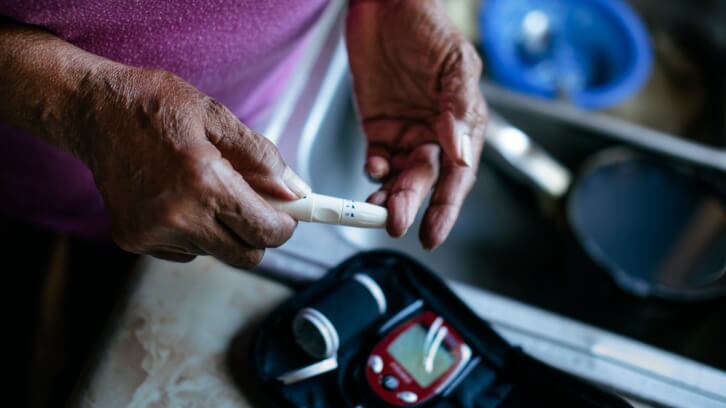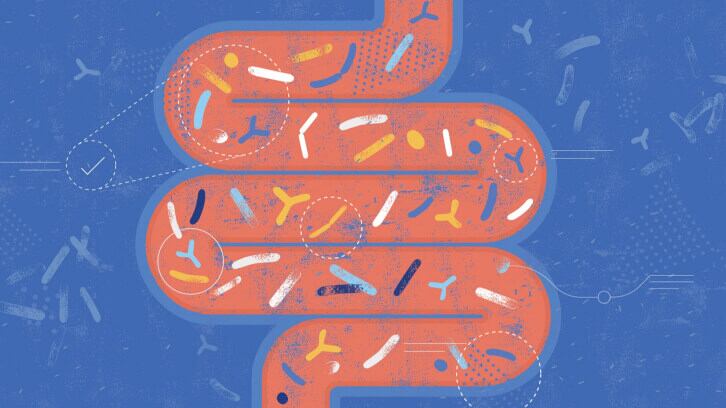An international team of researchers reviewed 30 studies to explore the gut-brain axis, as the metabolites, hormones and neurotransmitters exchanged through that axis are altered within the malnourished. Although scientists are exploring microbiome-based interventions as a tool to address malnutrition, cognitive improvements are more difficult to measure despite other physiological gains.
“Even if the gut microbiome of malnourished children can be restored to more closely resemble the community structure of their well-nourished peers, it remains unclear if cognitive development is restored in parallel,” the researchers wrote. “We conclude that there is a need for assessment of cognition and the use of various tools that permit visualization of the brain anatomy and function (magnetic resonance imaging, functional near-infrared spectroscopy, electroencephalogram) to understand how interventions targeting the gut microbiome impact brain development.”
Restoring microbial diversity?
Malnutrition is a global problem affecting 195 million children under the age of 5, influencing height and weight but also impairing cognitive development. Moreover, rapid brain growth occurs within the first 36 months of life, but malnutrition stunts that growth with effects that reach into later life, the researchers noted.
“Due to the inadequate nutrients received from breast milk and the impact of solid food introduction, the malnourished infant's gut microbiome does not follow the same developmental trajectory that is observed in healthy infants,” they added.
Bifidobacterium longum appears in a healthy infant gut, breaking down human milk oligosaccharides from breast milk, yet the review described that “differences observed between the gut microbiomes of healthy and malnourished infant groups include reduced alpha diversity within the malnourished infants, where commensals like B. longum and Lactobacillus mucosae were depleted.”
Also, there are fewer species responsible for energy acquisition and higher abundances of microorganisms that could be pathogenic among malnourished individuals. Research results are mixed about whether malnourished children benefit from dietary interventions which may influence their microbiome, and consequently, their cognition.
“It is widely recognized that the composition of the gut microbiome shifts in response to dietary changes,” the researchers wrote. “However, a recent study on the gut microbiome of malnourished children from Zimbabwe reported a pattern of programmed gut microbiome assembly that was unresponsive to dietary interventions…This brings into question the efficacy of treatments that target the gut microbiome with the specific aim of altering the gut microbiome composition to restore functionality.”
In contrast, other studies show probiotics can contribute to restoring microbial diversity or can result in functional changes within the microbiome. For example, the researchers reviewed a study in Uganda that demonstrated that “the beta and alpha diversity of the gut microbiome in children with severe acute malnutrition reached similar measures to that of healthy children when the probiotics Lactobacillus rhamnosus and Bifidobacterium animalis lactis BB-12 were administered.”
Call to action
The literature review included studies that explored the relationship between regional brain (grey matter) volumes of participants at one to two years of age and the diversity of the gut microbiome. The analysis found that these associations were correlative and that there was a need to investigate and test the connection between the brain and gut microbiome. Although animal models suggest brain development could be improved by targeting the gut microbiome, research on humans proves scarce, the reviewers concluded.
“While studies connecting the gut microbiome with cognitive impacts in animals have been conducted, extrapolation of these results to human subjects is always fraught with difficulties,” the researchers wrote. “[There’s a causal] role of the gut microbiome in modifying structural immunological features of the brain in animal models. Direct evidence for causal relationships between the gut microbiome and neurodevelopment in human subjects is lacking and represents a critical research gap.”
Source: Clinical Nutrition
doi: doi.org/10.1016/j.clnu.2024.03.029
“The infant gut microbiome and cognitive development in malnutrition”
Authors: Inoli Shennon et al.



